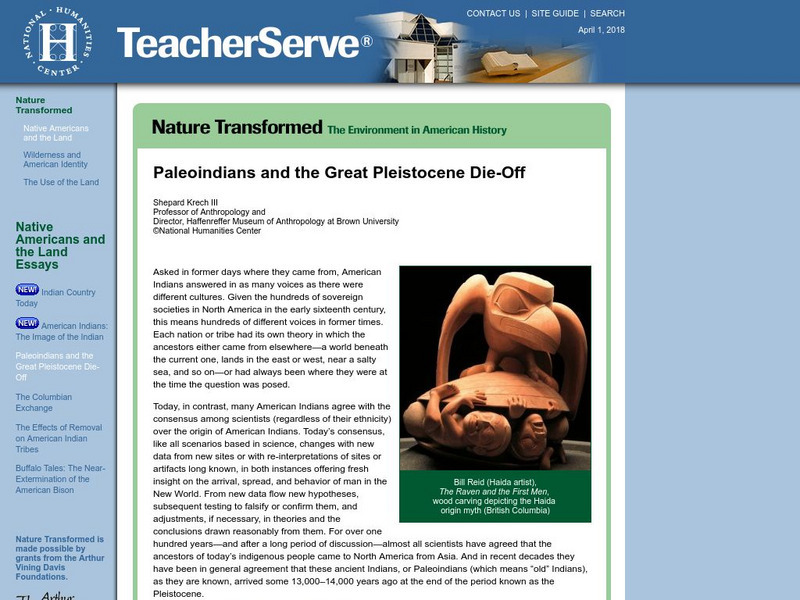Hi, what do you want to do?
Core Knowledge Foundation
Year 2: Northern Europe
How is life in Northern Europe different from other areas of the world? Historians journey through the various regions of Northern Europe discovering what type of climate, animals, and lifestyles exist in that section of the world. They...
Curated OER
Are Butterflies Free?
Students use remote sensing to study monarch butterfly migration and human interaction to save the Oyamel forest (Mexico) for butterfly and human habitation.
Curated OER
What's All the Buzz About
Students participate in a game of charades to examine different animal behaviors. After reading an article, they discuss why bees waggle and how that behavior applies to humans. They research the behaviors of an animal of interest to...
TED-Ed
How Languages Evolve
Do all languages have a common ancestor? Although no one yet knows the answer to that big question, the narrator of this short, animated video explains how linguists use migration patterns, geological features, and word clues to...
Curated OER
Our Way of Life
Students interview Native American Elders about animal migration, traditional food gathering, and subsistence. They research endangered animals, draw a game cycle, and create maps of local migration of animals.
Curated OER
Sudan Surprise
Students consider animal migration patterns that have been recently documented in Sudan. They investigate the migratory patterns of animals and discuss how human conflicts and activities affect migratory wildlife populations.
Curated OER
Winter
Students examine how animals adapt to the harsh New England winter. They discuss articles they have read on the subject.
National Humanities Center
National Humanities Center: Teacher Serve: Paleoindians and the Great Pleistocene Die Off
Article discusses Paleoindian migration and animal extinction at the end of the Pleistocene era and explores what we can learn about conservation given what we know about Pleistocene climate and extinction.












